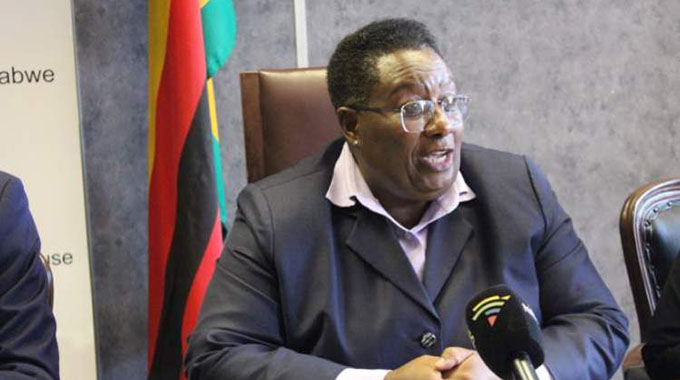Be patient with us: ZACC boss

Victor Maphosa in Marondera
THE Zimbabwe Anti-Corruption Commission (ZACC) has assured the nation that it will continue investigating corruption until the nation is free from the vice.
Commissioning the specialised anti-corruption courts in Marondera, ZACC chairperson Justice Loice Matanda-Moyo implored the nation to be patient with the anti-graft body as it intensifies its clampdown on corruption.
The Mashonaland East launch ran concurrently with a similar event in Bindura, Mashonaland Central. The launch brings the total number of specialised anti-corruption courts operating in different provinces to seven.
“It takes tireless effort, perseverance and unhesitant deployment of resources for a country to weed out corruption. I assure you that ZACC and its partners are built with these characteristics,” she said.
“ZACC and the ZRP will not tire in investigating corruption and making arrests where those are called for, the National Prosecuting Authority on its part must always stand ready to diligently prosecute cases and the courts to play their adjudicative role without fear or favour until the whole of Zimbabwe is rid of corruption.
“All I wish to do is to implore the public to remain patient because legal investigations and legal processes are intricate. Hurried investigations usually result in weak evidence being placed before the courts, leading to the discharge of persons who may otherwise be guilty. ZACC does not believe in rushed investigations aimed at pacifying members of the public in the short-term, but achieving very little if anything in the long-term,” she said.
She said the advantage of the corruption courts is that corruption cases are prioritised.
“They no longer need to join the routinely long queues which the ordinary cases go through to be heard in court. That results in expeditious resolution of the cases, which in turn gives the public confidence in Government’s efforts of dealing with corruption.”
She said the New Dispensation had made it clear that economic recovery can only be achieved if corruption is wiped out.
She commended organisations for partnering ZACC in the fight against corruption by assisting in the setting up of the specialised anti-corruption courts.
“As you may all be aware, the Second Republic has made it clear that the country’s economic recovery is heavily anchored on the eradication of corruption.
“All players in the administration of justice therefore have no alternative but to coalesce around the scourge,” she said.
“I must acknowledge from the onset that the ongoing establishment of specialised anti-corruption courts across the country is an attractive initiative adopted not only by the Zimbabwean Judicial Service Commission, but also by other jurisdictions which are serious about tackling corruption cases head-on.
“It, therefore, requires no emphasis that specialised treatment of corruption cases provides for close attention to be accorded to the challenge of corruption. This fits well into the national anti-corruption strategy set up by Government. We must all come together and find ways of implementing the national strategy,” she said.
Justice Matanda-Moyo said corruption is a global complex war, which requires joint and coordinated efforts.
“Fighting corruption is never a stroll in the park, it requires joint and coordinated efforts at local and international levels. One of the worst effects of corruption is the plunder of national resources by those engaging in the vice, even acts of economic crime that occur cross-border still have local effect.
“For this reason, the commission is making concerted efforts to recover proceeds of corruption laundered in regional and offshore hide- outs.
In pursuit of this, the commission signed a Memorandum of Understanding with the Anti-Corruption Commission of Zambia on October 17.
The agreement entails collaboration with our Zambian counterparts in joint investigations, mutual assistance, the exchange of crime intelligence, the recovery of proceeds of crime and exchange of skilled personnel among other issues.”







Comments